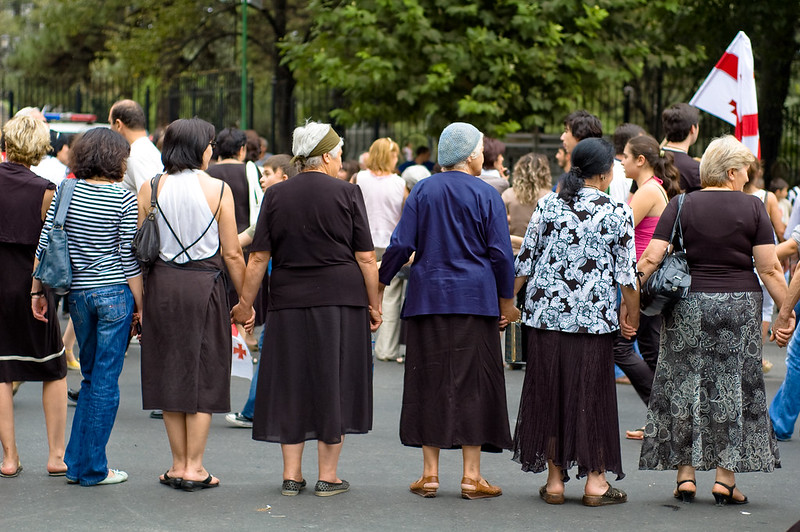Tests of unity for the oppositions in Tbilisi
One year after the elections, questions are being asked about the real possibility of alliances between the various groups and movements opposing the government. But the distances remain marked and difficult to overcome. There is concern that the repercussions of what is happening in Ukraine may also excessively condition life in Georgia.
Tbilisi (AsiaNews) - The parliamentary elections in Georgia are a year away, and the opposition to the ruling Georgian Dream party is wondering about possible strategies to defeat it, taking the country to a more decidedly pro-European line and moving away from Moscow's influence. However, the problem is also conditioned by the many contradictions within the opposition forces themselves, which do not seem easy to overcome.
Two Georgian political scientists who are quite popular in the country, David Darčjašvili and David Zurabišvili, discussed these issues on Ekho Kavkaza. The basis of the comparison is a consideration based on the experience of the past few years, whereby the less likely the opponents are to win, the more attempts are made to reunify them before the elections.
Zurabišvili is decidedly sceptical about the possibility of real coordination, given the heterogeneity of the different groups and movements opposing the government, with different political histories behind them that are not without conflict and still open wounds. The only factor of convergence is the aversion to the Georgian Dream, but this does not seem to be enough: "An extreme polarisation must take place, from all or nothing, and this can happen if the ruling party itself reaches a level of total radicalisation of its positions, which at the moment cannot be affirmed".
According to the political scientist, 'if the elections will propose the alternative: either with Ivanišvili and Russia, or without Ivanišvili and Europe, then perhaps there will be a confrontation of equals', but the likelihood of such a clear-cut confrontation is by no means a foregone conclusion. In that case, if the politicians do not unite, the voters will certainly take sides. And in any case, much depends on the EU's reactions to Georgian political events, and the events on the Ukrainian front: the more Ukraine can assert a winning position, the more Georgia will be drawn to the West.
Darčjašvili recalls the various 'Popular Front' experiments of the 1980s, even before the end of the USSR, which partly fuelled internal conflicts in the Caucasian country. In his opinion, the pro-Russian excesses of the Georgian Dream policy could recreate a similar situation, but 'it will also have to be seen whether Putin will be able to stay in place after the failures of the Ukrainian operation'. The 'National Movement', the main opposition party, was founded by ex-President Saakashvili in continuity with the anti-Soviet and anti-Russian Front.
The Georgian Dream, on the other hand, tries to disguise itself behind the 'defence against dictatorship' of the Saakašvili period, which had introduced the military state throughout the country for the war with Russia. On the other hand, the government's position is not openly anti-European, indeed it subscribes to 80% of the EU's demands, reserving some options to defend its own interests, especially those of founder Ivanišvili. However, Darčjašvili assures Darčjašvili, there are many in the party who wholeheartedly support Georgia's entry into NATO and the EU, 'not a group of fascist and Putinist fanatics'.
The government's propaganda emphasises that the West's interest is not focused on Georgia, it mainly wants to weaken Russia, and therefore 'a lot of caution' is needed, and this would actually be Ivanišvili's line, rather than 'plotting with the Kremlin'. In truth, both sides of the Georgian political spectrum are apprehensive about the over-radicalisation of Ukrainian politics, which could in turn excessively affect the life of neighbouring Georgia.
However, the 'Saakashvili factor' remains open, the uncertain fate of the ex-president in prison and seriously ill, who is not allowed to seek treatment abroad, as requested by his supporters and by the government of Ukraine itself, whose nationality the 'presidential dissident' holds. All the oppositions, the two political scientists conclude, 'are in favour of Saakashvili, but they are in conflict with each other', and the ex-president, however much he may still influence Georgian politics, is not known for his ability to bring contenders together.
Photo: Flickr / Vladimer Shioshvili
12/02/2016 15:14







.png)










